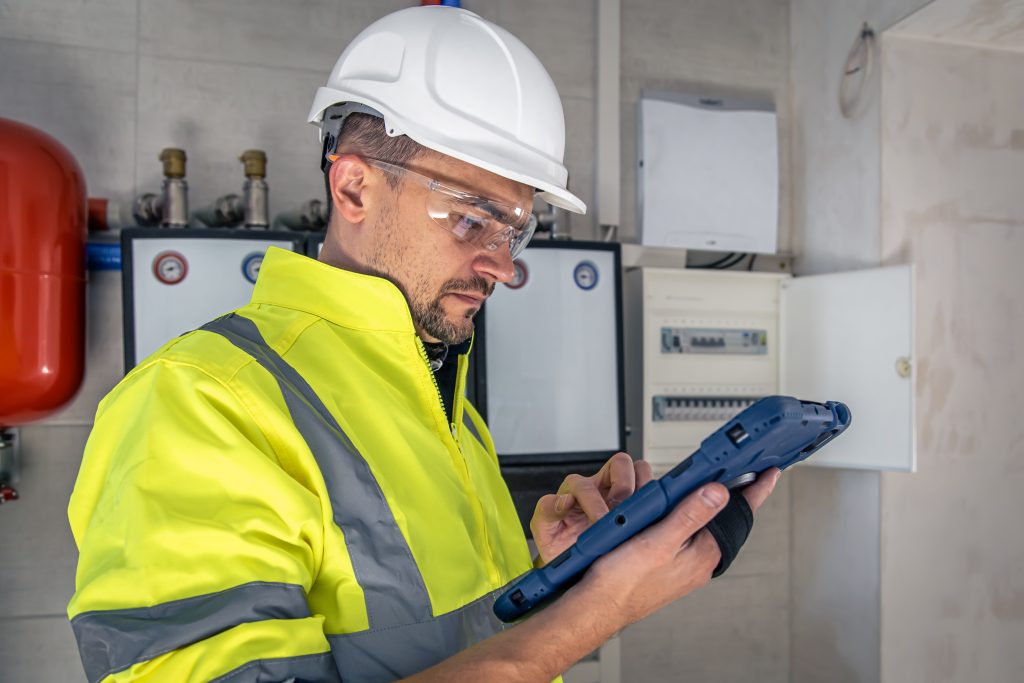As the populace grows the call for for energy also rises, leading to increased greenhouse gasoline emissions and environmental degradation. energy performance performs a vital role in mitigating those affects with the aid of decreasing strength intake, reducing carbon emissions, and promoting sustainable practices. Governments, corporations, and individuals are spotting the significance of energy performance in achieving environmental sustainability, fee savings, and power security within the long term.
This article delves into the following key points:
What Is Energy Audit?
An energy audit is a process that assesses energy usage in a building or facility to identify opportunities for energy efficiency improvements.
An energy audit is basically an inspection of a building to assess its energy efficiency. It’s like a checkup for your home or business in terms of energy use. The auditor will look for areas where energy is being wasted and identify ways to conserve it. This can help you save money on your energy bills and reduce your environmental impact.
There are different types of energy audits, from a simple walk-through inspection to a more detailed analysis that uses specialized equipment. No matter what type you get, an energy audit can be a valuable tool for saving energy and money.
Importance of Energy Audits
Conducting a routine energy audit ensures you’re reducing your carbon footprint and continuing to be energy efficient by continuously employing new energy conservation improvements.
Here’s a quick list of why an energy audit is important:
- An energy audit will identify energy-saving opportunities.
- It will help you understand your energy usage and ways to use energy better.
- An energy audit can identify safety concerns with electrical systems, wiring, and ventilation, thus making your home or business safer.
- It will increase a home’s resale value.
- An energy audit will help you identify how to reduce carbon monoxide production in the home or business.

Process of Energy Audit
There are three components to an energy audit: evaluation, checking out, and performance guidelines.
once the audit is whole, the auditor will provide you with a record outlining energy consumption, a very last strength grading, and home development guidelines to reduce electricity fees on strength payments.
The evaluation
A registered energy auditor will come to your property or commercial enterprise and conduct a walk-via of the inside and outside to decide your energy usage and problem areas.
even as carrying out their walk-via, they may analyze precise elements that contribute to your property’s or enterprise’s universal electricity performance.
The auditor will examine the heating and cooling systems, or HVAC machine, and your insulation tiers, together with the basement and outdoors attic partitions. in addition, they will measure and count number how many doorways and home windows the building has and take external measurements.
Airtightness And Other Tests
the second one part of an strength audit entails an airtightness take a look at, also referred to as a blower door test. all through this test, an electricity auditor will decide how tight a building’s envelope is with the aid of checking for air leakage in a house or commercial enterprise. in the course of an airtightness check, an air sealing method is carried out. The auditor will seal the front door of the constructing, and they’ll area a huge fan inner.
The trying out fan will pull the interior air out of doors the constructing, so that you can pressure out of doors air to return through any cracks or holes. often, those air leaks are easily felt together with your hand, however most auditors will use feathers or incense to appropriately determine wherein the cracks are positioned.
further to the airtightness test, an electricity auditor will assess your commercial enterprise or home’s power use with the aid of carrying out a thermographic test. furthermore, they’ll use numerous energy usage equipment items to degree strength intake, consisting of infrared cameras, surface thermometers, and furnace performance meters.
recommendations to enhance energy efficiency
once your residential or business constructing has been evaluated and trying out has been completed, the electricity auditor will provide you with a radical list of pointers concerning energy efficiency enhancements you could adopt. If carried out, maximum of the hints will help you keep cash on software bills.

Benefits of Energy Audits
- Cost Savings: Identifying ways to reduce energy consumption
- Increased Efficiency: Improving energy productivity
- Environmental Impact: Minimizing carbon footprint
- Compliance: Meeting regulatory requirements
- Comfort: Ensuring a comfortable environment for occupants.
- Increasing Property Value
If you would like to know more about the benefits of an energy audit, click here.

How To Prepare For An Energy Audit
There are a few things that you can do to prepare for an Energy Audit:
- Gather your energy bills for the past 12 months. The Energy Auditor will use these to assess your energy consumption.
- Prepare a list of questions you would like to ask the Energy Auditor. This could include questions about the results of the audit, the recommended improvements, or the cost of these improvements.
- Clear some space in your home so that the Energy Auditor can access your heating and cooling system, insulation, windows, and doors.
Conclusion
This article has explored the essential aspects of energy audits. We’ve seen how a comprehensive energy audit can meticulously assess your building’s energy consumption, pinpoint areas for improvement, and pave the way for cost-saving and environmentally friendly operations.
Don’t let your building’s hidden energy drains go unchecked any longer. Take control of your energy consumption and environmental impact by scheduling an energy audit today. Many utility companies and local governments offer rebates and incentives for conducting energy audits, making them a cost-effective investment. By taking action, you can:
Reduce your energy bills:
Identify and address inefficiencies that are driving up your energy costs.
Enhance your building’s comfort:
Improve air quality, temperature control, and overall building performance.
Minimize your environmental footprint:
Conserve valuable resources and contribute to a more sustainable future.
An energy audit is the first step towards a more energy-efficient future for your building. booking your energy audit today and unlock the potential for significant savings and environmental responsibility.















